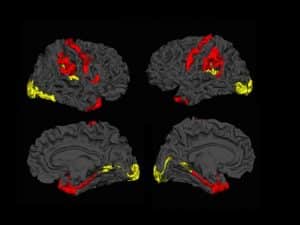Stunning Breakthrough: Novel discovery can change treatment of schizophrenia in future
A team of scientists from across the globe have shown that the brains of patients with schizophrenia have the capacity to reorganize and fight the illness. This is the first time that imaging data has been used to show that our brains may have the ability to reverse the effects of schizophrenia.
Schizophrenia is an illness generally associated with a widespread reduction in brain tissue volume. However, a recent study found that a subtle increase in tissue also occurs in certain brain regions.
Using Magnetic Resonance Imaging (MRI) and a sophisticated approach called covariance analysis, scientists were able to show that brains can repair themselves, even in cases where schizophrenia was deemed irreversible due to brain damage, according to a Lawson Health Research Institute statement.
Scientists based this on observing 181 people, 98 of them with schizophrenia and 83 without. They used MRI to compare brain tissue. Researchers published the study, titled “Dynamic cerebral reorganization in the pathophysiology of schizophrenia: a MRI-derived cortical thickness study,” in the publication Psychology Medicine.
Currently, doctors try to reduce the loss of brain tissue rather than reverse it, but the study indicated that the
brain is always trying to recover brain tissue, even in cases of severe tissue damage. The discovery could result in more targeted treatments that deal with the root cause of schizophrenia, rather than simply halting its advance.The team’s next step is to clarify the evolution of this brain tissue reorganization process by repeatedly scanning individual patients with early schizophrenia and study the effect of this reorganization on their recovery.
“These findings are important not only because of their novelty and the rigour of the study, but because they point the way to the development of targeted treatments that potentially could better address some of the core pathology in schizophrenia,” said Dr. Jeffrey Reiss, Site Chief, Psychiatry, LHSC, in the statement. “Brain plasticity and the development of related therapies would contribute to a new optimism in an illness that was 100 years ago described as premature dementia for its seemingly progressive deterioration.”
“Dr. Palaniyappan and his colleagues have opened new avenues of research into our understanding of schizophrenia,” added Dr. Paul Links, Chair/Chief, Psychiatry, LHSC. “Their findings may lead us to be able to harness the brain’s own compensatory changes in the face of this illness and improve recovery. We are excited that Dr. Palaniyappan will be continuing this important clinical research here in London with his international colleagues.”



























